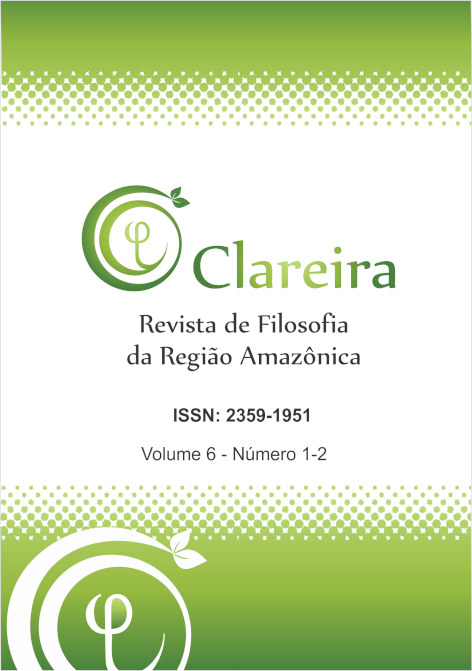Dwelling in ‘A Hidden Life’: Heidegger’s concept of the Fourfold in Malick’s film
Resumo
Undoubtedly, the major theme of Terrence Malick’s film, A Hidden Life, is the ‘unknown’resistance – or act of disobedience – perpetrated by Franz Jägerstätter right after Germany invaded Austrian territory in World War II. Nonetheless, this essay aims to uncover what could be called as the ‘hidden aspect’ of the main characters hidden life, in other words, the ‘authentic dwelling’ of the Jägerstätter family, enunciated by the notion of ‘ownedness’ (Eigentlichkeit). In order to properly develop this approach to Malick’s film, I consider Heidegger’s concept of the ‘Fourfold’ and its many related philosophical notions exposed in his later works. Primarily, I present a brief synopsis of the film and introduce the main aspects of the way in which the life in the countryside is represented by Malick, showing the daily routine of the characters in the village of Sankt Radegund. These known – but not quite perceived – elements, which one could argue are usually neglected in a philosophical research, are in fact my starting point on the outlining of Heidegger’s thinking. Secondly, taking into account the philosopher’s arguments exposed in the texts, The Question Concerning Technology, The Thing, and ...Poetically Man Dwells..., I propose a connection between the notions of ‘thingness’ and ‘measure-taking’ as our guide into the Heideggerian path. Finally, as it is put forward both the key concepts and the film’s most important characteristics, I shortly explore other works of Heidegger such as, Building Dwelling Thinking and the Bremen Lectures, in relation to the aforementioned texts, with the purpose of better exposing the ideas enunciated by the film in direct correspondence with his concept of Fourfold, and in conclusion, its relevance to our contemporary way of dealing with beings (entities).
Referências
HEIDEGGER, M. Being and Time. New York: Harper & Row, 2008a.
HEIDEGGER, M. Building Dwelling Thinking. In: HEIDEGGER, Martin. Basic Writings. New York: Harper Perennial, 2008c. p. 343-363.
HEIDEGGER, M. “… Poetically Man Dwells…”. In: HEIDEGGER, Martin. Poetry, language, thought. New York: Harper & Row, 1971b. p. 211-227.
HEIDEGGER, M. The Thing. In: HEIDEGGER, Martin. Poetry, language, thought. New York: Harper & Row, 1971a. p. 163-184.
HEIDEGGER, M. The Question Concerning Technology. In: HEIDEGGER, Martin. Basic Writings. New York: Harper Perennial, 2008b. p. 307-341.
HEIDEGGER, M. Insight Into That Which Is. In: HEIDEGGER, Martin. Bremen and Freiburg Lectures: Insight Into That Which Is and Basic Principles of Thinking. Bloomington: Indiana University Press, 2012. p. 1-73.
STIVERS, C., All Things Shining: A Narrative and Stylistic Analysis of Terrence Malick's Films. PhD diss., University of Tennessee, 2012.
VARGA, S; GUIGNON, C. Authenticity. 2020. Disponível em: https://plato.stanford.edu/entries/authenticity/. Acesso em: 18 set. 2020.
WOESSNER, M. What Is Heideggerian Cinema? Film, Philosophy, and Cultural Mobility. New German Critique, Durham, v. 38, n. 113, p. 129-157, jul. 2011.
Film Reference
A Hidden Life. Directed by Terrence Malick. Austria: Babelsberg Film Studio, 2019.

